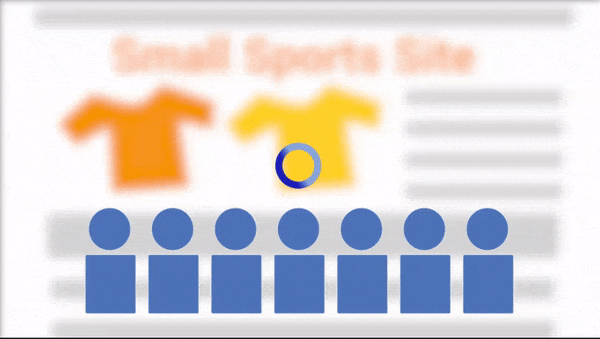What Is Website Hosting and Why Does It Matter for Your Website?
What is website hosting? This is to make a point, I promise.
When you go to a party, there’s always a host. The host is usually the one who sets the location so everyone can come and enjoy the party.
When you’re thinking of website hosting, think of your site’s host like the host of the party. Your web host, just like a party host, offers you a place to put your website so it can be enjoyed by everyone on the internet.
We’re going to tell you all about the basics of website hosting services, go over a few different types of web hosting, and explain why choosing the right provider matters for your business.
What is website hosting?
As I said before, website hosting allows your site to be on the internet. You can have the best-looking website out there, but without a host, all you have is a bunch of files with nowhere to go.
When you pay a hosting provider to host your site, you’re paying for space on a server.
The amount of space and the cost can vary depending on what you choose.
There are a lot—and I mean A LOT—of hosting providers out there. What you choose really depends on what you need for your business.
What I mean by this is different providers have different options you can choose from to host your website.
If you’re a larger e-commerce site selling football jerseys internationally, you’re going to need much more space and control over your website than a smaller site that makes custom sports attire for local teams.

So choosing the right type of web hosting for your business is really important to your web presence.
What are the different types of web hosting?
So, we talked about what is meant by hosting a website. Now, let’s talk about four different types of website hosting.
The first option is a website builder.
You’ve probably heard of these. Website builders like Wix, Squarespace, or WordPress are popular options among small businesses and bloggers.
With a website builder, you can also directly edit your site without any specific code, so it’s a great tool for a beginner.
The second type of website hosting is shared hosting.
Shared hosting means you share a server with other websites. So if you don’t get a ton of web traffic, this option might work for you.
The downside is if one website crashes the server, you’re stuck dealing with that. Even if you didn’t break it.
If other sites on the same server get a lot of traffic, or even if your site gets a lot of traffic, it’ll also slow down your site.
There are other options if you don’t think this is what your business needs.
Okay, option three: a virtual private server.
Just like a shared host, you share a virtual private server, or VPS, with other websites.
However, the server is separated into different virtual servers for each site. So although you share the same physical location with other sites, each has its own little compartment.
Think of it like a dresser for your clothing. You have the dresser that contains the different drawers, and inside each drawer are your shirts, socks, pants, and whatever else you have in there.

Each type of clothing, a.k.a. each website, is separated in a different compartment, but everything is contained in the same storage unit.
A VPS allocates a set amount of space for each site, so if one site on the server is getting a lot of traffic, it won’t negatively affect how your site runs.
Kind of like if you have a lot of shirts, and your shirt drawer gets stuck, you can still access your socks.
And now to option four, the most expensive option. A dedicated server.
A dedicated server is all yours.
You’re not sharing any space with other sites. The server is entirely dedicated to you.
Plus, you have total access to the server.
If your website gets over 100,000 visitors a month, you might want to look into a dedicated server.
But if you run a small business on a budget and your website gets less than 100,000 visitors in a month, this probably isn’t the right server type for you.
Choosing the right type of web hosting for your business can be a tough choice, but it can also help to look into the services each web host offers.
Why is choosing the right web hosting provider so important?
Making the wrong choice for your business’s website can harm your business in the long-run.
Going with the cheapest option may work for your wallet right now, but it can lead to a slower site and, ultimately, fewer visitors.
And there are high expectations when it comes to site speed. In fact, a lot of people will leave your site if it takes over three seconds to load.

This ties back to your site’s search engine optimization. This is where I tell you to check out our SEO playlist on YouTube.

If you see that people are bouncing from your site, it’s a signal that you’re giving them a bad user experience, or you don’t have what they’re looking for.
Even if you have all the answers on your site, it won’t matter if it doesn’t load.
This will definitely hurt your position in the search engine rankings. The further from the top of the search results you are, the less traffic you’ll get.
So do your research and know your business needs before paying for web hosting services.
If you’re looking for expert help maintaining your website, don’t hesitate to reach out to our team at WebFX. We’d be happy to work with you on all of your web design and hosting needs so you can start driving results for your clients.
And as always, subscribe to our YouTube channel and read our blog for expert internet marketing knowledge.
See you next time!
The post What Is Website Hosting and Why Does It Matter for Your Website? appeared first on WebFX Blog.